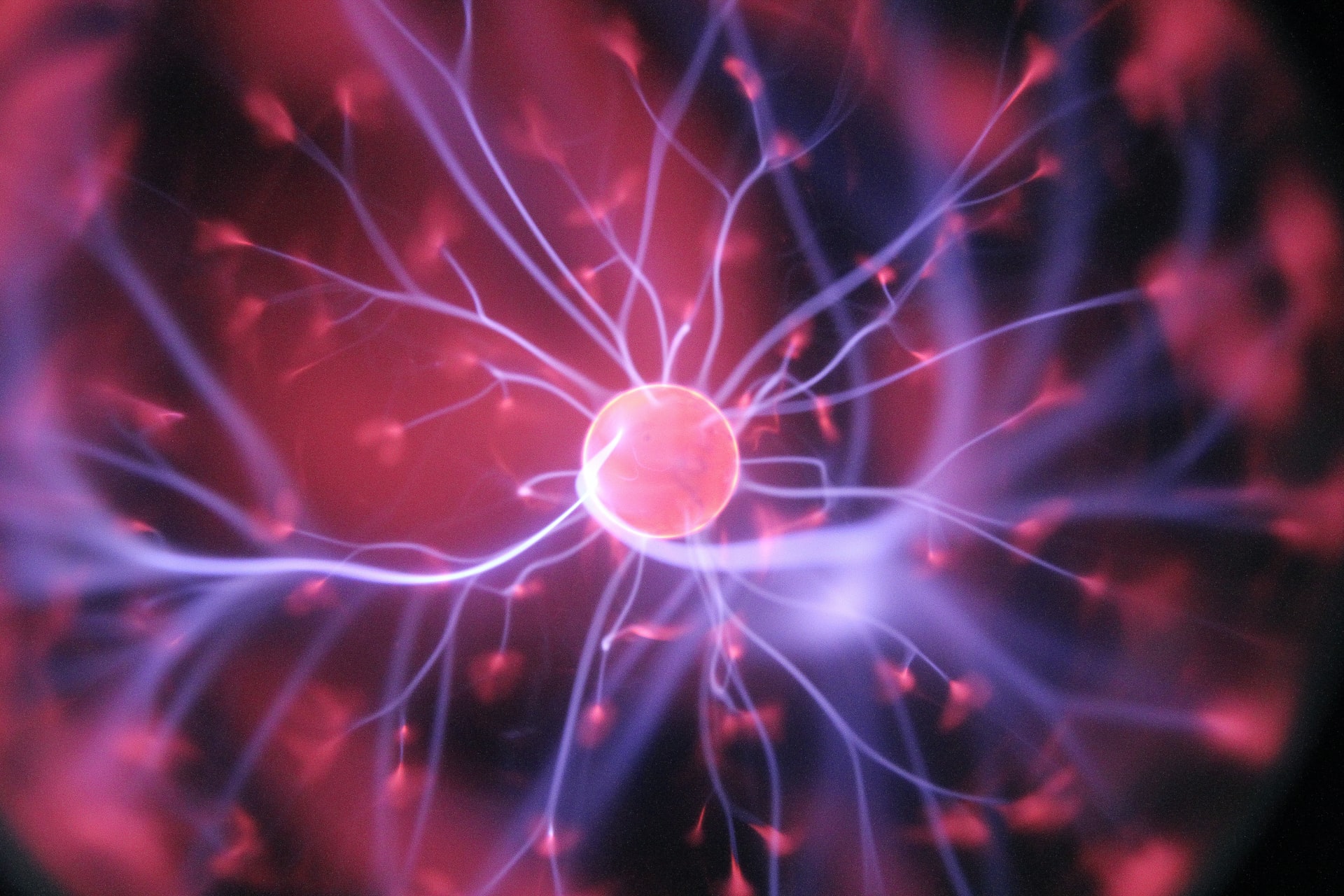
Archetypes hold the key to self-development, but what are they and why is it so important to recognise how archetypal energies show up in your life?
It’s well established that humans absorb information from the environment through our five senses. In the content titled ‘How The Nervous System Works,’ you discovered how the nervous system processes this information and stores it as memory. [1]
However, not all the information we have access to is encoded and stored as retrievable memory. A great deal of it is filtered out to prevent sensory overload. [2] What is rejected is said to be “split off”; fragmented, splintered, disassociated or dismembered. [3]
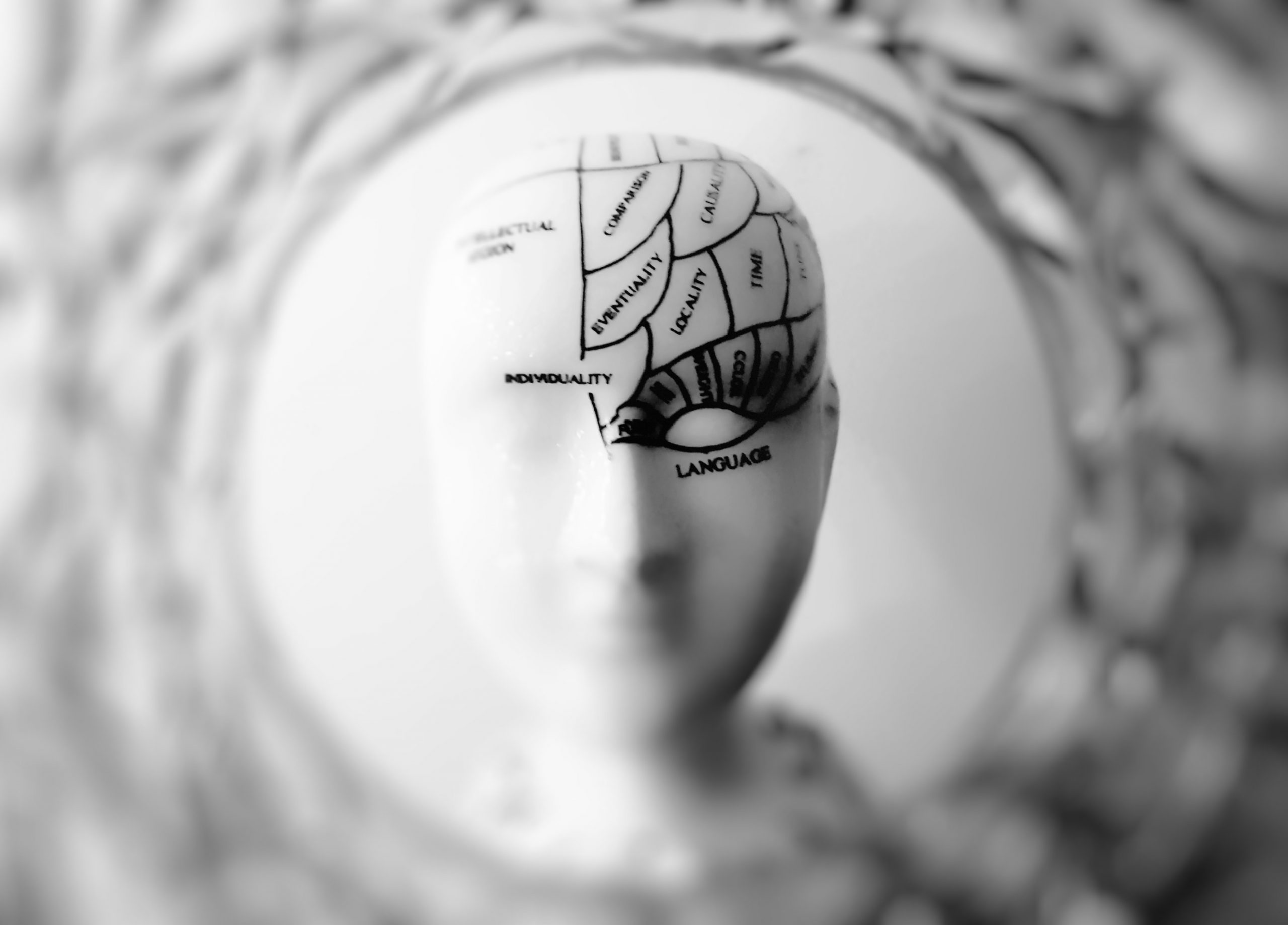
When consciousness is split off, it’s not fully accessible to the conscious mind. Sigmund Freud noted that when the ego dissociates, the content is repressed and resigned to the unconscious.
However, unconscious content still stored energy which resurfaces and ultimately influences our behaviours and decision making. The eminent psychoanalyst Carl Jung described these energies as archetypes.
If you’ve already read Jung’s Model of the Mind, you may remember the Swiss proposed the idea that archetypal energies can be recognised by symptomatic patterns associated with various complexes.
The Swiss also showed that a complex is an “autonomous personality” [4] that projects onto the conscious mind and takes possession of the ego. Autonomous personalities typically prompt peculiar behaviour which is a strong indication that it is part of the personality that has previously been split-off and repressed.
Thought-Provoking Quote
“One of the most important changes of internal structure is the phenomenon of possession: some content, an idea or a part of the personality, obtains mastery of the individual for one reason or another. The contents which thus take possession appear as peculiar convictions, idiosyncrasies, stubborn plans, and so forth. As a rule, they are not open to correction….Possession can be formulated as the identity of the ego-personality with a complex.” [5]
~ Carl Jung, CW9 Part 1, The Archetypes and the Collective Unconscious
Depth psychology demonstrates that dismembered parts of the personality become subconscious programs the ego associates with because it offers some form of comfort, reprieve, joy or pleasure.
However, although the ego may associate with the information it is passed, it doesn’t necessarily know the underlying motivation of archetypal energies because that information is unconscious (a subconscious program that is not accessible to the conscious mind).
It could even be a possibility that archetypal energies remain entirely unknown meaning it doesn’t exist in the conscious mind or as a subconscious program in the personal unconscious.
Thought-Provoking Quote
“A more or less superficial layer of the unconscious is undoubtedly personal. I call it the personal unconscious. But this personal unconscious rests upon a deeper layer, which does not derive from personal experience and is not a personal acquisition but is inborn. This deeper layer I call the collective unconscious. I have chosen the term “collective” because this part of the unconscious is not individual but universal; in contrast to the personal psyche, it has contents and modes of behaviour that are more or less the same everywhere and in all individuals. It is, in other words, identical in all men and thus constitutes a common psychic substrate of a suprapersonal nature which is present in every one of us.”
~ Carl Jung, CW9 Part 1, The Archetypes and the Collective Unconscious [6]
The ego is only concerned with your emotional survival and can only act on memory; that is, on what we already know. Thus we typically fall into the trap that is a bubble of comfort, transmute the same energies and yield the same results.
Remember, we create our experience of reality by our thoughts, emotions and actions. Thoughts, emotions and actions are all energy that carries vital in-formation. Information is consciousness.
Thought-Provoking Quote
“Most of us I think of information as data or what a person knows. But the reach of information is deeper than this. Physical and life scientists are discovering that information extends far beyond the mind of an individual person, or even all persons taken together. It is an inherent aspect of both physical and biological nature. The great physicist David Bohm called it “in-formation,” meaning a process that actually “forms” of the recipient.”
~ Ervin Laszlo, Science and the Akashic Field [7]
Jung proposed that archetypal energies project onto the conscious ego to fill a void left by the split-off consciousness. But archetypal projection that possesses the ego is an undeveloped aspect of consciousness.
The archetype has an ulterior motive the ego is not consciously aware of. One could say, the motive is to express themselves and release energy that is creating tension, or it may be that consciousness is trying to make itself known so the that ego and self can be reunited.
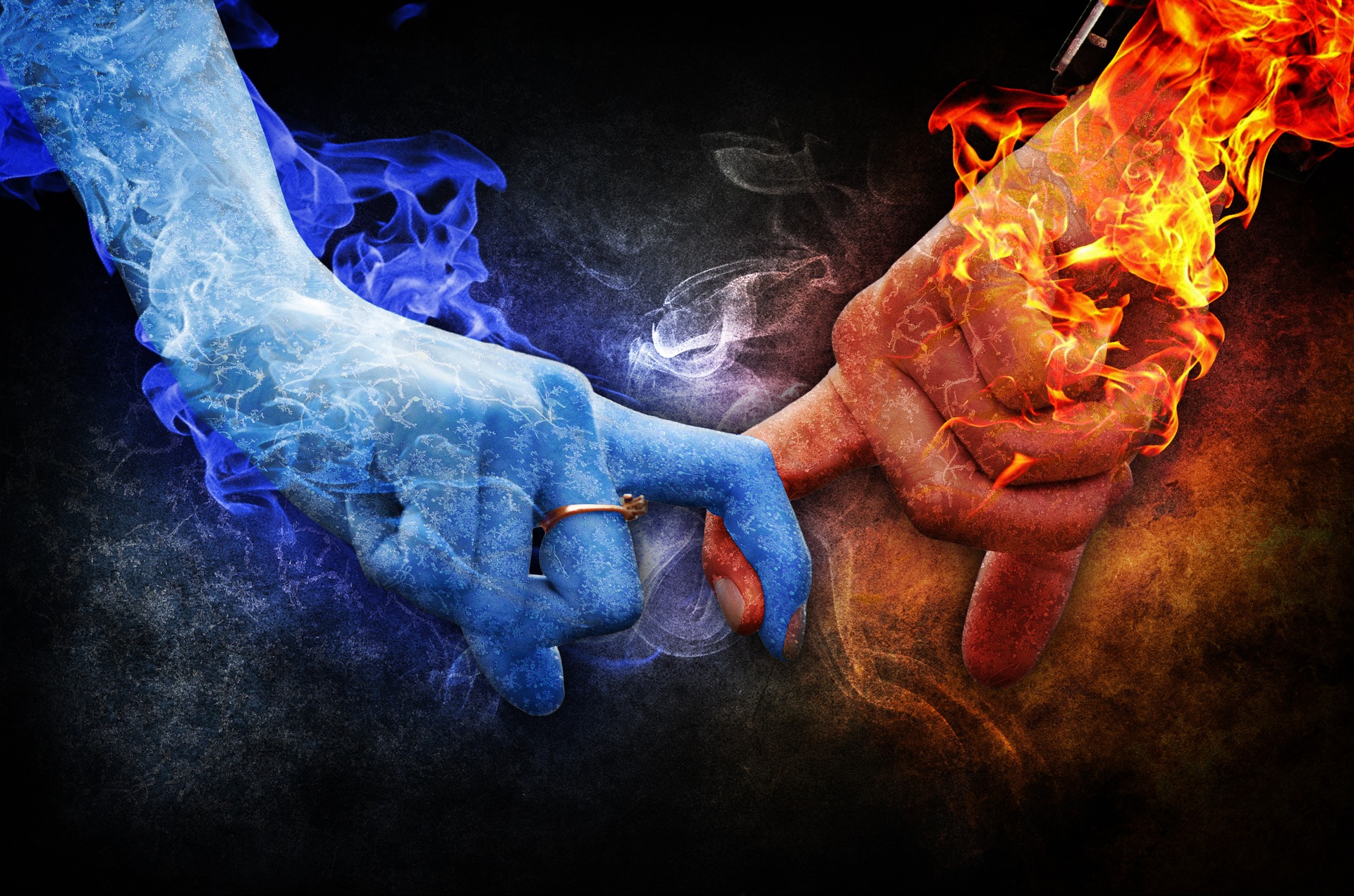
It is arguably both of these proposals. Unconscious content holds onto energy and needs to be released in one form or another. The Law of Thermodynamics determines that energy does not die, it transmutes.
So the energy has to go somewhere.
On the second point, we can learn about ourselves and integrate unconscious content into the conscious mind. When the alienated Self is reconciled with the inflated ego, you restore balance and harmony.
(If you don’t already know how the Self-ego axis becomes separated and causes inner conflict, you will learn how and why in the article: What is Ego Inflation and How Does It Happen?
What makes the second point such a vital necessity is because of the first point. Energy does not die it transmutes.
The burning question is, what does a particular energy become when it transforms?
Quantum physics shows that all energy carries information. The information we take from our environment enables us to function successfully in our environment.
However, when we don’t have the relevant information we make mistakes or completely malfunction. If we have partial information, we can pretty much muddle by and learn through experience.
The problem we all have is that consciousness is typically split off and repressed in childhood. Jung noted that “the bulk of what comes out of the unconscious [subconscious programs] has an infantile character at first.” [8]
These infantile behaviours are archetypal energies that have been split off and thus, undeveloped. They are parts of your personality that hasn’t been given the opportunity to grow and mature.
How many times do you act out like a child?
That’s your archetypal energies at play.
Subconscious programs influence our behaviour the majority of the time because the nervous system is running a program. [9] A memory is organised in such a way that helps us to survive.
Archetypal energies begin life as coping mechanisms, but when they are ignored and remain in the unconscious, they become chaotic and destructive.
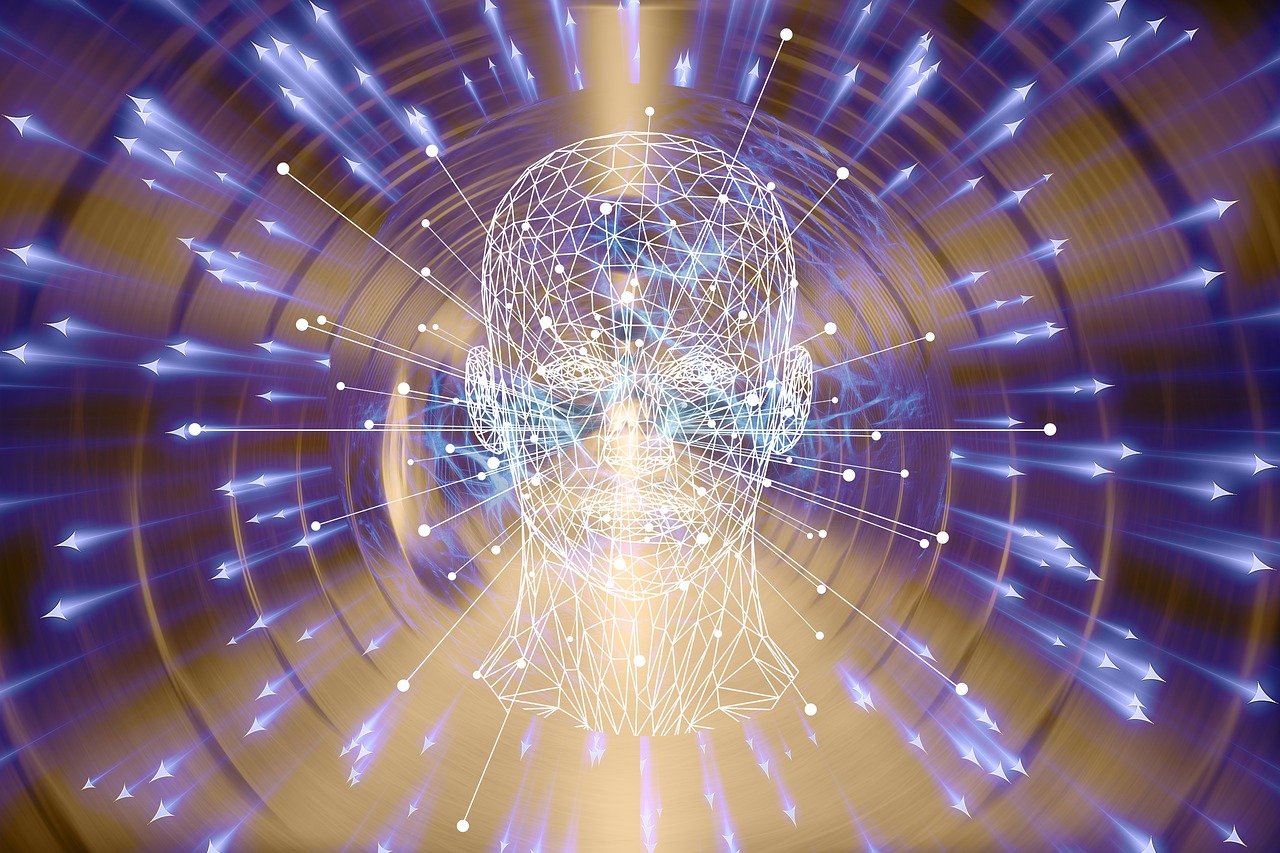
That being the case, it makes sense to upgrade your subconscious programs to perform the life you want to live. Hopefully, most of your subconscious programs are constructive and beneficial, but are you thriving or surviving?
Infantile behaviours are a reflection of repressed consciousness that is undeveloped. They are undeveloped because they have not been given expression since childhood. [10]
In other words, you haven’t given the repressed archetype the opportunity to develop. An important part of your nature is being ignored. Meanwhile, your ego is responding to a subconscious program that is only partially coded.
You could say that the mind is fragmented. It is not whole. And given whole shares the same root word as healthy, it makes sense to re-member dis-membered content that is buried in the unconscious and give it life.
This is only possible when you become self-aware of your complexes and integrate fragmented consciousness into conscious awareness — when you re-member dis-membered aspects of your personality.
A fragmented mind is a natural human condition. I don’t know if it’s ever possible to be completely whole, but I do know that the more fragments of your personality you integrate into the conscious mind the better equipped you are to handle life.
I know this because I struggled with chronic anxiety and depression for almost 30 years. My “whole” personality was fragmented into levels of complexes and neuroses that were heading towards debilitating disease. I was in the stage of neurosis.
The fragmented personality is not a modern problem. The latest biological evidence points towards the fragmented mind being an evolutionary process. It became necessary for mankind to develop intellect in order to manage the complexities of life.
Thought-Provoking Quote
“When the fully conscious mind emerged it wasn’t enough for it to be orientated by instincts, it had to find understanding to operate effectively and fulfil its great potential to manage life.”
~ Jeremy Griffith, Freedom: The End of the Human Condition [11]
And thus the battle between intellect and instinct developed. This is the inner conflict you experience taking place between the Self (instinct) and the ego (intellect).
When you act out, feel anxious, chaotic, angry, bored, restless or any of the other unhealthy traits listed in the wounded column of the archetypes tool, it is clear that the aspects of your personality are fragmented.
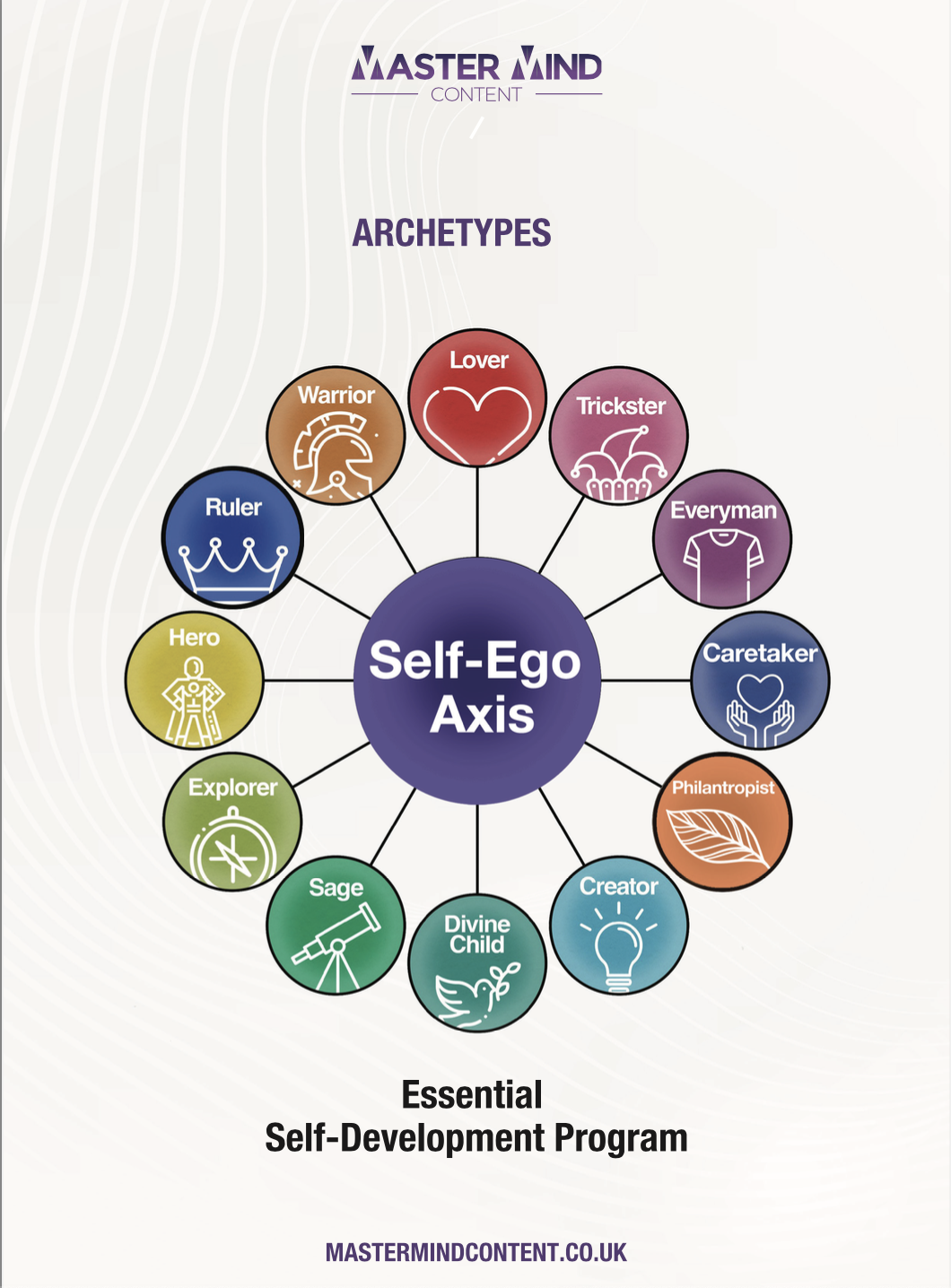
If you observe your patterns of thoughts, actions and emotions, you can identify which archetypes are calling for your attention. Archetypal energies surface as impulses that prompt moods and behaviours such anger, anxiety, lust etc.
If partial information is stored as a memory, you have a partially functioning program. When the program is totally undeveloped, you are more likely to make mistakes and risk “malfunction”.
Thought-Provoking Quote
“This perpetually recurring “pathologizing” is defined as “the psyche’s autonomous ability to create illness, morbidity, disorder, abnormality, and suffering in any aspect of its behaviour and to experience and imagine life through this deformed and afflicted perspective” (Hillman 1975a, p. 57). There is no cure of pathologizing, there is, instead, a re-evaluation.”
~ James Hillman, Archetypal Psychology [12]
Knowledge of how archetypal energies become split-off and cause mental illness and disease empowers you to reverse a trajectory towards debilitating illness before illness and disease kick in.
The path to debilitation and disease starts with a complex and moves on to neuroses when left unconscious. [13] The path in the opposite direction towards healthy integration starts with synchronicity and self-awareness.
When you observe repetitive experiences and determine how your thoughts, actions and emotions created that experience, you bring unconscious content into the light of conscious awareness — self-awareness!
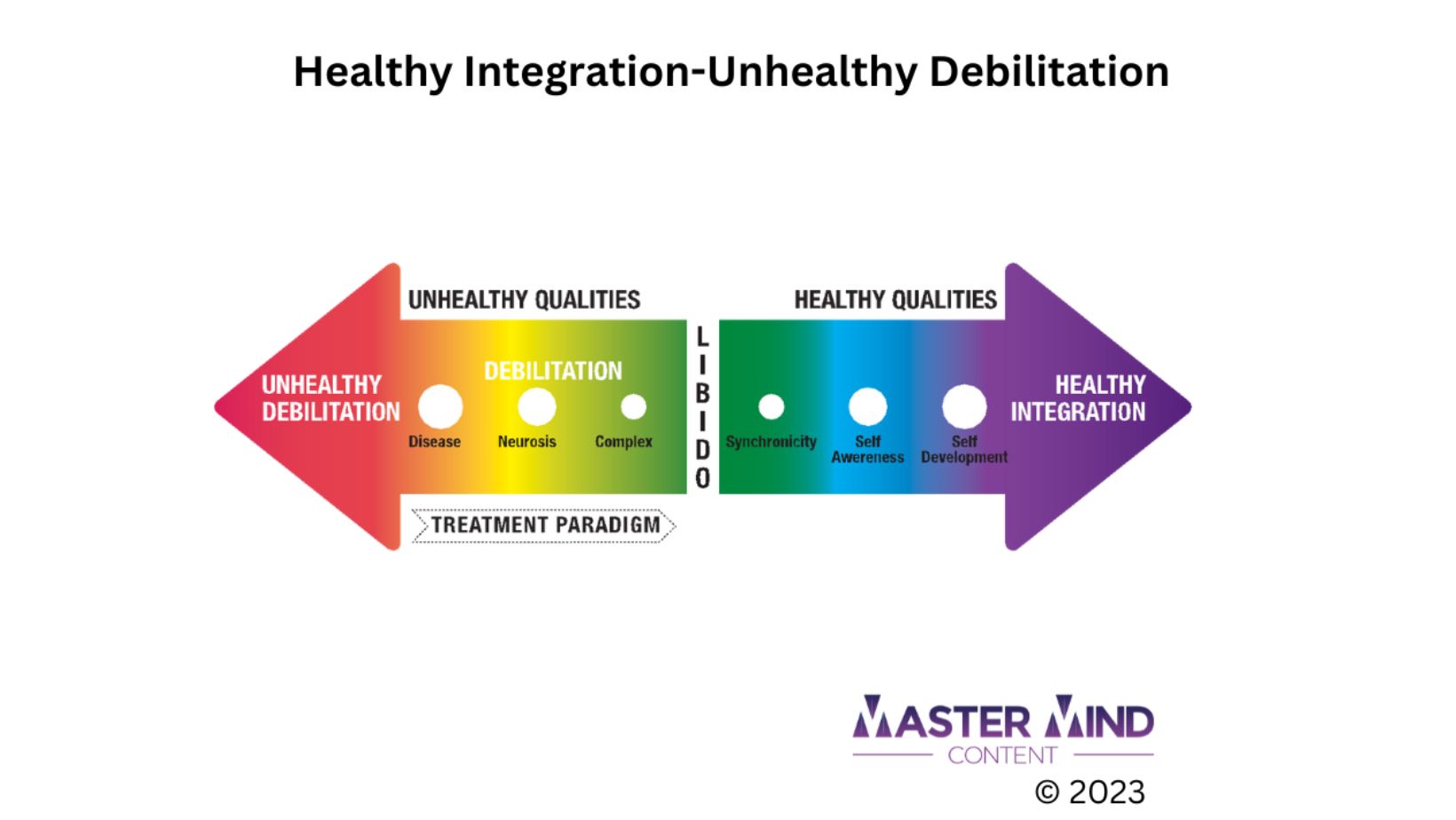
An alternative option is to observe your complexes and neuroses. Depth psychologists in the first part of the 1900s held strong beliefs that repression is the creator of complexes and neuroses.
Thought Provoking Quote
“The neurotic symptom is the manifestation of a repressed instinctual impulse which has broken through the repression in a disguised form.”
~ Wilhelm Reich, The Function of the Orgasm [14]
For example, Wilhelm Reich pointed out that anxiety is born from a fear that you cannot act independently or freely. [15] When the ego does not have a program that enables you to interact with your environment, you naturally experience sense anxiety.
On the other hand, if you fail to front up to the challenges presented by your environment, the repressed aspect of your personality remains unconscious.
The challenges we face in our environment spark a chain of psycho and biochemical responses. And all this is energy. The human psychobiological system is electrical, chemical and hormonal — all of which are encased in neurotransmitters and processed by the nervous system.
Emotions influence the functioning of our major organs including the integrity of our immune system. When emotions are repressed, immune defences are inhibited and the body is less capable of fending off illness. [16]
Not only that, but it could be creating illness.
Thought-Provoking Quote
“The history of the development of a neurosis in an adult will also show that a suppressed emotion may frequently persist for a long time in unconscious or even in conscious phantasies, the content of which naturally runs directly counter to some predominant tendency, and yet that this antagonism does not result in any proceedings on the part of the ego against what it has repudiated. The phantasy is tolerated for quite a long time, until suddenly one day, usually as a result of an increase in the affective cathexis of the phantasy, a conflict breaks out between it and the ego with all the usual consequences.”
~ Sigmund Freud, Group Psychology and the Analysis of the Ego [17]
Although Freud does not clarify what he means by “all the usual consequences”, physicians throughout the ages came to understand that repressed emotions can impact a person’s health.
These practices are still continued in many places around the world including Chinese medicine, Ayurveda and shamanic healing. Western medicine is still coming to grips with it but ancient medicine is making a revival.
That’s probably because they work and patients relying on Western medicine have had enough of the limitations associated with medicines pushed by pharmaceutical companies. Health is a money-spinner but only if you have sick patients.
In his book, ‘When The Body Says No’, Gabor Mate points out the importance of holding up “a mirror to our stress-driven society so that we may recognise how, in myriad unconscious ways, we help generate the illnesses that plague us.” [18]
Thought-Provoking Quote
“Repression—dissociating emotions from awareness and relegating them to the unconscious realm—disorganizes and confuses our physiological defences so that in some people these defences go awry, becoming the destroyers of health rather than its protectors.”
~ Gabor Mate, When The Body Says No [19]
Dr. Mate specifically addresses the impact of stress on our health. But we invite stress when we are not prepared to face the challenges of our environment.
Isn’t it true that you don’t feel stressed when you know what you are doing? You may even feel confident, happy and accomplished whilst performing whatever task you are performing.
What’s more, these emotions are great for stimulating your emotional well-being.
On the flip side, the ego feels stressed and anxious when you don’t know what to do. And until you learn how to do it, that’s the program your nervous stores as a memory. Stress and anxiety.
Failing to express dismembered aspects of your personality could mean you are heading towards a debilitating disease. And that’s not the direction you want to be headed.
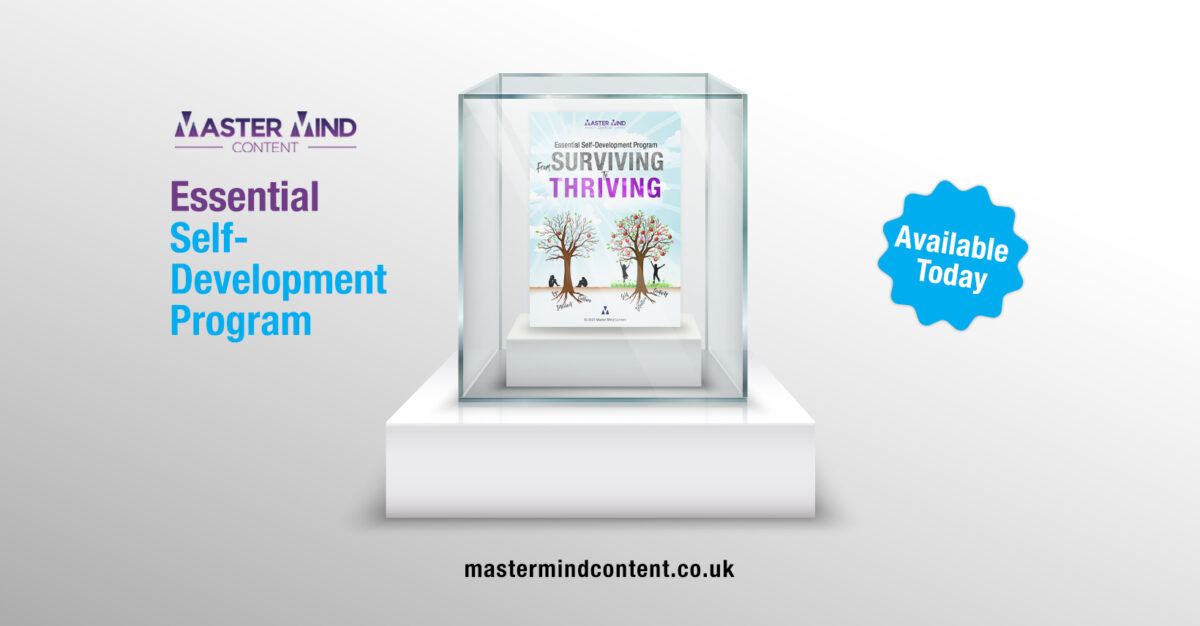
[1] How Memory Functions, openstax.com
[2] Science Update: NICHD researchers identify neurons that prevent sensory overload (2018)
[3] What Does It Mean to “Split Off” and Attack? Psychology Today, G. Henriques Ph.D (2020)
[4] Carl Jung, CW9 Part 1, The Archetypes and the Collective Unconscious, 2nd ed, para 484 (1968)
[5] Ibid, para 220
[6] Ibid, para 3
[7] Ervin Laszlo, Science and the Akashic Field, p.13, Kindle loc 359, (2007
[8] Carl Jung, CW7 The Effects of The Unconscious Upon Consciousness, p.46, para 21 (1928)
[10] Carl Jung, CW7 Two Essays on Analytical Psychology, para 21 (1928)
[11] Jeremy Griffith, Freedom: The End of the Human Condition, p.45 Kindle Loc1439, (2015)
[12] James Hillman, Archetypal Psychology, p.51 (1983)
[13] The Crucible of Complexes, Centre of Applied Jungian Studies (2023)
[14] Wilhelm Reich, The Function of the Orgasm (1927)
[15] Ibid
[17] Sigmund Freud, Group Psychology and the Analysis of the Ego, footnote p.18, (1921)
[18] Gabor Mate, When The Body Says No, p.7 of 335 (2011)
[19] Ibid, p.15 of 335 (2011)
